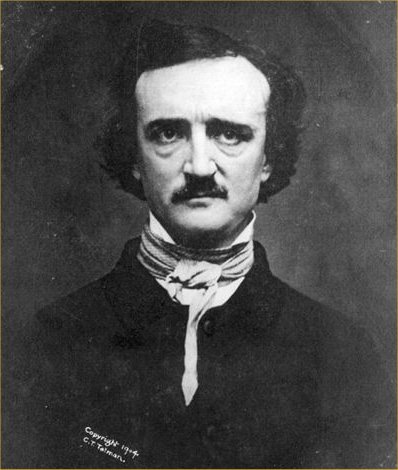"And the will therein lieth, which dieth not. Who knoweth the mysteries of the will, with its vigor? For God is but a great will prevading all things by nature of its intentness. Man doth not yield him to the angels, nor unto death utterly, save only through the weakness of his feeble way."- Joseph Glanvill
To the Narrator, Ligeia was "the character of his beloved, her rare learning, her singular yet placid cast of beauty, and the thrilling and enthralling eloquence of her low musical language." He loved her with all of this heart and cared for her all of her life. Ligeia soon became deathly ill. Her perfect body and statue turned "pale" and "grave." Her "wild desire for life" made her "wrestle with the Shadow." The Narrator notices Ligeia's strong will against death and how much she wants to live! Her "eager vehemence of desire for life" expressed her feelings and strength; it was unexplainable, the Narrator thought, her need for life was so intense that it foreshadowed the future as she "came and departed as a shadow." The Narrator then reads Ligeia's poem which describes the struggles between life and death. Death is portrayed as a "blood-red thing that writhes from out the scenic solitude!" It is described to be the "Conquerer Worm" and the "tragedy,"Man"." Ligeia's poem shows that death will conquer man no matter how strong their will is. When the poem is finished Ligeia jumps up and exclaims "O God! O Divine Father!-- shall these thingss be undevaitlingly so?--shall this Conquerer be not once conquered?" Again this suspense foreshadows the near future in the short story. The Narrator sees how Ligeia feels towards death and her goal and faith that someone will conquer the "Conquerer" and go against the all natural things. She then says her final words that "Man doth not yeild him to the angels, nor unto death utterly, save only through his feeble will." Ligeia shows that she has a strong will and only those with "feeble will" will fail and be conquered, but she is not one of those people.
After Ligeia's death the Narrator is in complete "lonely desolation" and reminded of Ligeia too much in the "decaying city by the Rhine." Thus, he moves to a quiet portion of England. The Narrator then chooses to marry "the fair-haired and blue-eyed Lady Rowena", the "successor of the unforgotten Ligeia." He wants to replace the lonely hole where Ligeia used to be and tries to forget her by marrying Rowena. However, the Narrator feels hatred and no affection toward Rowena. Through the Narrator's suffering and sadness, he turns back to his addiction, opium. Whenever he is in one of his opium dreams his memory flies back to Ligeia, "her purity, of her wisdom, of her lofty, her eternal nature." The Narrator feels that he must forget Ligia but he turns to opium and is forced to remember her once again, all of faultless attributes and "idolatrous love." When he is hallucinating he believes that he could restore her to the pathway she had abandoned upon the earth." Although he did love and miss Ligeia, we never know forsure if this was Ligeia's doings or his own.

No comments:
Post a Comment